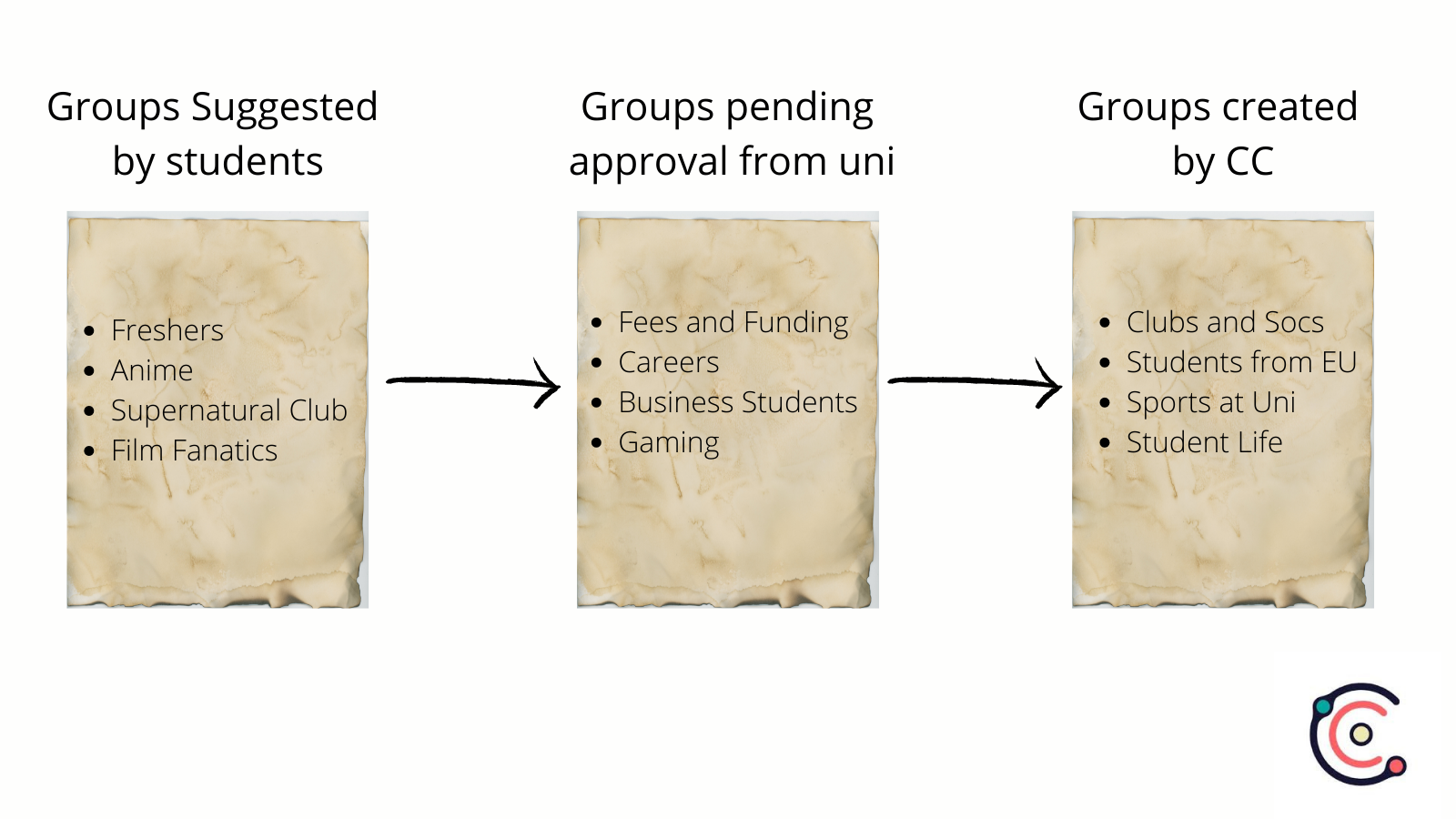Ensuring an exceptional student experience at Staffordshire University
As community manager for Staffs CampusConnect, Adele makes certain that every new student who joins is individually on-boarded and guided into relevant parts of the Staffordshire University community. It is an important first step, but what comes next is what really drives ongoing engagement, and in turn generates greater long term institutional value.
As a first step, every new applicant is individually guided into their relevant university community.
As community partners we initially work closely with the various teams at Staffs to examine the new incoming cohorts’ characteristics. We do this in order to establish a bespoke community design that reflects broad commonalities across cohorts. The starting point is working out what ways we can easily bring these new students together to support community generation. Easily identifiable characteristics based around student subject areas (e.g. engineering students), nationalities (e.g. Indian students), and broad ‘catch all’ categories (e.g. September 2022 starters), are great starting points. When applicants first join, these groups are ideal landing points to kick things off.
Broad student peer groups are a great landing point for students to initially come together, but they don’t support ongoing engagement!
The problem with this ‘precision design’ approach is that it doesn’t support ongoing student participation and engagement through to enrolment and beyond. This is because the members of these groups are very loosely connected and there quickly becomes a demand for more intimate, more closely matched spaces for members to come together. Developing these more niche spaces requires a different approach to community design.
Niche groups drive stronger ongoing engagement because they bring more closely defined members/students together
Niche groups, by definition, are smaller more intimate spaces where specific members have an opportunity to come together. The intimacy of the space means the members are much closer and feel safer being open and honest in their interactions. It is often in these spaces where the high value interactions and engagement happens. Moving applicants from broader community spaces to these niche groups, and often back to broad, provides a balance and supports better ongoing engagement.
Below is a example of some of the more niche community groups available to applicants on the Staffs CampusConnect service:
Staffs CampusConnect community is made up of both broad and niche community groups for 2022
An Emergent approach allows students to input on their university community design
By its nature emergent community design feels more democratic, as it gives the students a stake in the development of the community. Unfortunately this can't be automated and is difficult to scale, but it is critical in maintaining applicant community engagement contributing toward strategic goals such as enrolment conversion, student experience and retention.
As community manager this is where Adele is actively involved in developing the community with the team at Staffordshire. By firstly inviting students to suggest or request communities they would like to be part of, Adele can work with the teams to identify opportunities for more niche spaces.
Below are examples of high engagement 'niche' groups that have successfully emerged from within Staffordshire University applicant communities:
💬 Dog fanatics
💬 Table Top Role Playing
💬 Anime
💬 Let's talk about books
💬 The music scene in ____
💬 Film fanatics
💬 Disability chat
💬 Gaming
💬 Working & Volunteering opportunities
The process below demonstrates to process of groups being suggested, sent to review to evaluate if the group aligns with the goals of the community (if the group already exists as there may be close matches and we want to avoid duplication), and if appropriate and suitable for the cohort it is then made available for relevant applicants to join an begin connecting.
It is vitally important to identify what your community needs at a given point in time to maximise value for members.
Successful communities typically need a balance of emergent ‘niche’ communities, and more broad precise communities designed to achieve a particular objective or focus. In developing a strong community among new students, it is important to be able to identify what your community needs at a given point in time. To do this well, you have to provide a feedback channel, listen and respond.



